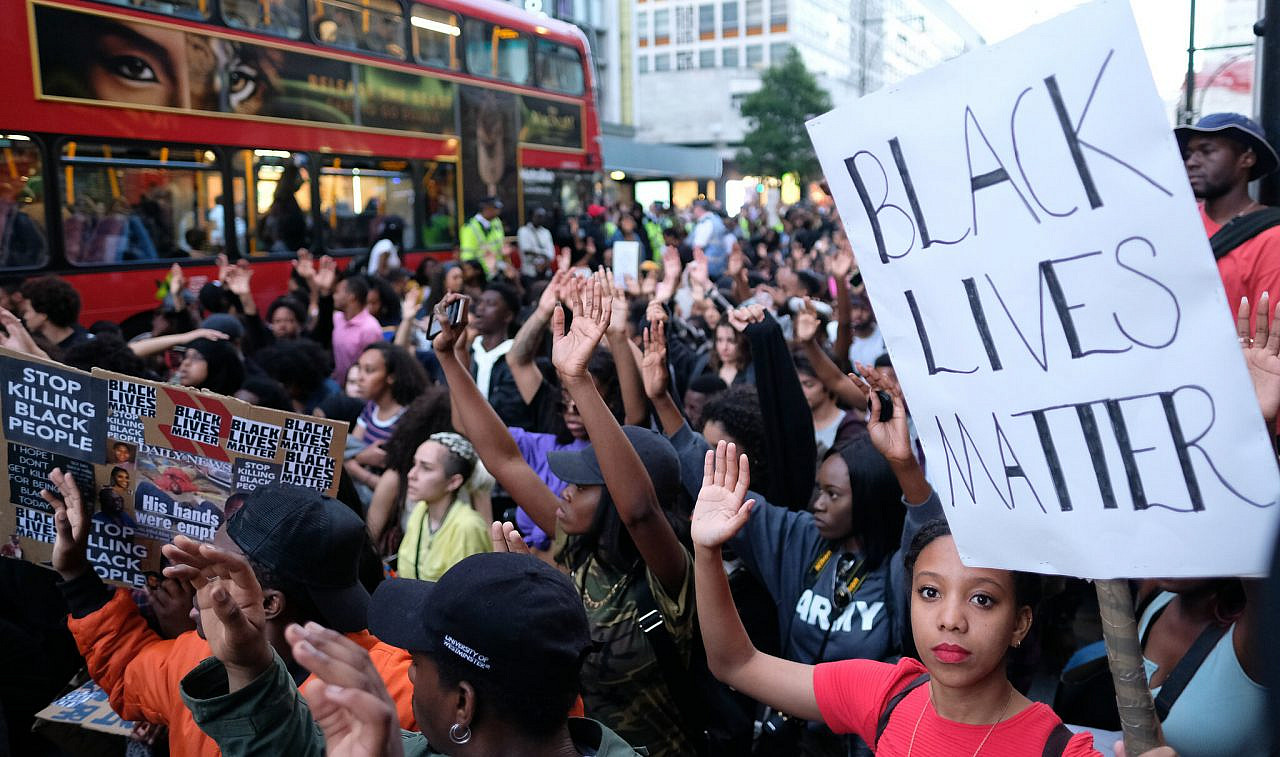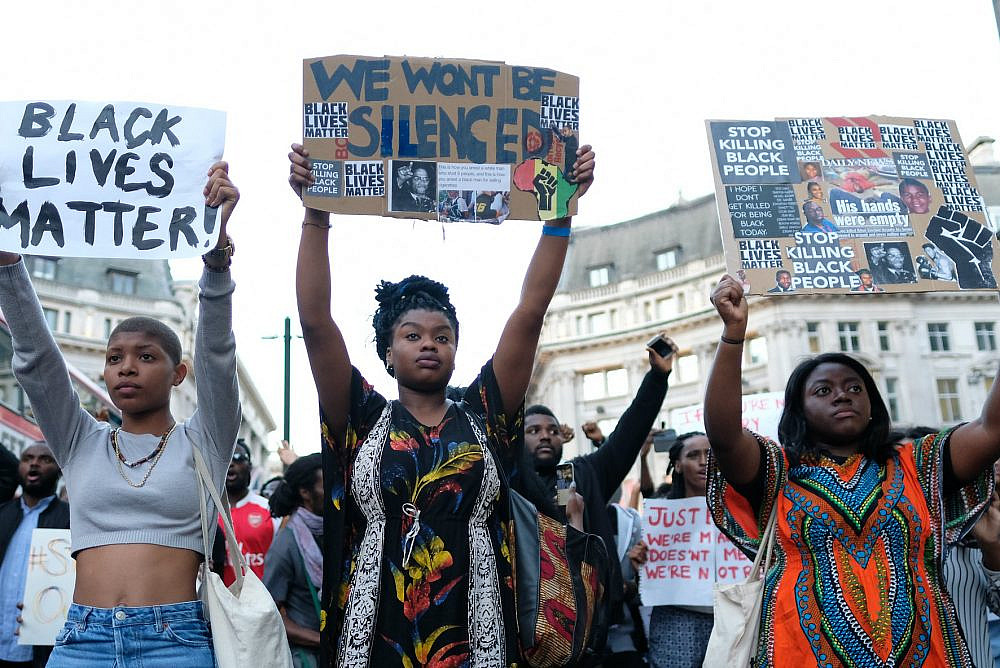As protests against police brutality have rippled across the world in the wake of George Floyd’s killing by police in Minneapolis last month, hundreds of thousands of people have taken to the streets demanding justice for Floyd and respect for Black lives. Alongside this message, however, different countries have been grappling with local variations of structural racism and racist histories.
In the United Kingdom, the issue of protesting Floyd’s death — and the racist systems that caused it — has become increasingly controversial, with explosive debates erupting over the relevance of the situation here. Indeed, tensions reached a fever pitch over the last week, with far-right protestors storming central London throwing Nazi salutes last Saturday, and fascists attacking refugee rallies in Glasgow this week. Some have argued that the situations in the United States and the U.K. cannot compare, while Prime Minister Boris Johnson and members of his government have argued that the U.K. is “not a racist country.”
But it is common knowledge that police hostility toward the Black community is a chronic issue in the UK. Like many Black people in the United States, we also have “The Talk” about what to do if you’re stopped by a police officer; a thought that hangs eternally on the minds of many Black British people is, “thank God they don’t have guns.”
I do not know a single Black man in my life who hasn’t been racially profiled by the police. My family and I have been targeted by racial profiling: police turned up to my 13th birthday party with riot vans, and most recently, police officers tied up and beat my brother without charging him. We are trying to get the police to release the footage of the attack, which they previously said they did not have; after the assault, my brother said the only difference between him and George Floyd is that the police did not kneel on his neck.
Institutional racism in the British establishment
There have been 39 custody-related deaths in the U.K. over the past two years. Black people have made up nearly a third of those deaths, despite only being 3 percent of the country’s general population. Internal government data from 2018 showed that Black people were 40 times more likely to be stopped and searched by police than white people in England and Wales.

A recent report found that Greater Manchester Police are 3.5 times more likely to use force against Black people than white people, even officers are more likely to be assaulted in encounters with white people. GMP recently came under fire for tasering a Black man in a petrol station in front of his young child — despite the fact that he appeared not to be resisting arrest. And under COVID-19 legislation, London’s Metropolitan police have been more than twice as likely to fine Black people for violations than their white counterparts.
The British establishment’s institutional racism also exists at the core of the criminal justice system, in which Black people are more likely to receive harsher sentences for committing the same crimes as white people. Moreover, a recent study found that Black people are 1.4 times more likely to be immediately sent to jail than white people for the same offenses. And there are more Black people in prison in the UK, relative to their share of the population, than in the United States.
The U.K. government knows that the police have a racism problem. In 1993, the racist murder of Stephen Lawrence, a Black teenager, was met with repeated failures to properly investigate and prosecute the perpetrators, who weren’t convicted until 2012. A government-ordered inquiry, begun in 1997 and completed in 1999, accused the Metropolitan police of “institutional racism” and set out recommendations to tackle the problem. It was a watershed moment in the U.K., but today’s statistics show that little has changed.
So even though there are clear differences between police brutality and the wider justice system in the U.K. and that in the United States, the former nonetheless shares many of the trademarks of the pervasive, white supremacist attitudes that trigger racially-motivated violence and discrimination perpetrated by U.S. police and courts.
It is because of all this that the police’s brutalization and murder of George Floyd resonated with many Black British people: we felt it. We saw how the police so easily criminalized and dehumanized a Black body simply for existing — we saw our brothers, our fathers, our cousins, our uncles, our grandfathers, our sons. It was a feeling Black people are all too familiar with, and now we’ve hit boiling point — because the British police have a white supremacy issue, just as police in the United States do.
In many ways, this is not surprising: the United States is a former British colony, and everything it knows about racism it learned from us. That’s why we have statues celebrating male slave traders such as Edward Colston and colonialists such as Cecil Rhodes scattered across the country; the wealth of the U.K. was built on white supremacy. And it is because of these similarities that people have taken to the streets here, from London to Durham, demanding justice, and saying “Black Lives Matter” — both at home and abroad.

